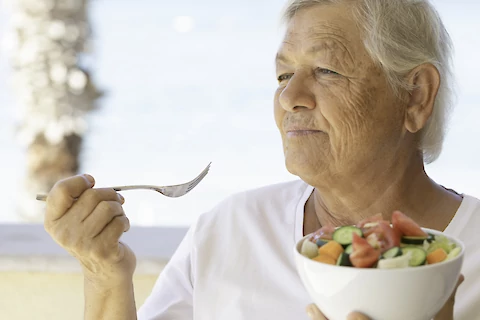
Nutrition Month spotlights the integral role nutrition plays in the health and well-being of our senior population. As caregivers, ensuring your elderly loved ones maintain a balanced diet can profoundly influence their quality of life. This isn't just about serving nutritious meals, but also fostering sustainable healthy eating habits that improve their overall health.
Learn some essential nutrition tips and practical meal-planning strategies customized for seniors, especially those who may be resistant to dietary changes.
The Need for Balanced Diets for Seniors
A balanced diet encompasses all food groups including proteins, carbohydrates, vitamins, minerals, and fats, each contributing to overall health in different ways. Seniors benefit from a balanced diet by maintaining energy levels, supporting cognitive function, and bolstering the immune system.
Unfortunately, seniors often experience nutritional deficiencies due to factors such as decreased appetite and metabolic changes. As caregivers, it's essential to identify these gaps and address them by incorporating nutrient-dense foods into their diet.
Hydration and Seniors
Seniors are at a higher risk for dehydration due to physiological changes, medication side effects, or diminished thirst perception. Dehydration can exacerbate certain health complications, making it vital that caregivers keep a watchful eye.
Encouraging seniors to drink more water begins with understanding their preferences and limitations. For instance, offering flavored waters and herbal teas, or incorporating hydrating foods like cucumbers and watermelons can be useful strategies.
Meal Planning Strategies for Seniors
Meal planning is an essential aspect of maintaining a balanced diet. It involves menus with all the necessary nutrients that cater to seniors' tastes and medical needs. Adapting meal plans can also benefit seniors with dietary restrictions. For instance, a diabetic diet plan may need to limit carbohydrates, while a heart-healthy diet may involve reducing sodium. It's about finding a balance and ensuring that meal plans are healthy and enjoyable.
Encouraging Healthy Eating Habits in Seniors
Inspiring healthy eating habits in seniors is about creating an environment that encourages good dietary decisions. This could involve sharing meals, encouraging participation in meal preparation, or providing positive reinforcement. Effective encouragement calls for understanding, patience, and regular reinforcement. While it may seem challenging, the results will be worth it.
Overcoming Resistance to Dietary Changes
Change is often met with resistance, especially when altering dietary habits. Understanding why seniors may resist changes in their diet can be instrumental in addressing this issue. It may be because of an ingrained habit or fear of missing out on their favorite foods.
Dealing with resistance requires empathy and tact. Explain the reasons behind the changes, involve them in the process, and gradually introduce new foods. Patience and persistence can go a long way in helping your loved ones embrace healthier dietary habits.
Get Nutrition Assistance From Senior Helpers
Nutrition is a crucial aspect of senior health and caregivers play an integral role in ensuring seniors maintain balanced diets. From planning meals to encouraging water consumption and navigating resistance, each step is an act of love and care.
If you're in the Danbury, New Milford, Newtown, or Fairfield County area and need assistance in managing the nutrition needs of your senior loved ones, contact us at Senior Helpers Danbury. We are committed to providing professional, compassionate care to help seniors live a healthier, happier life.